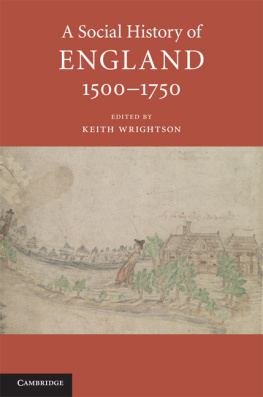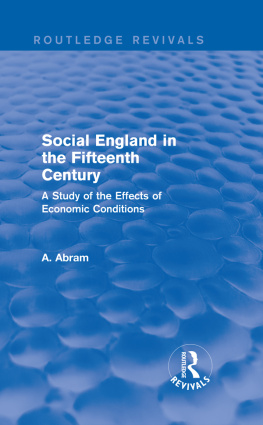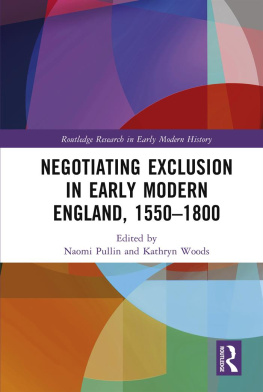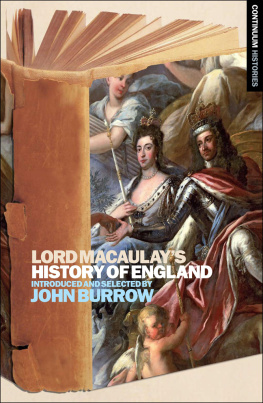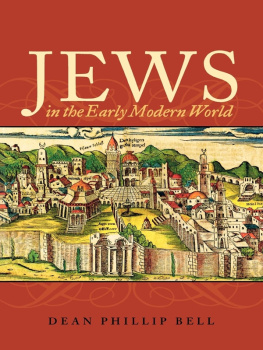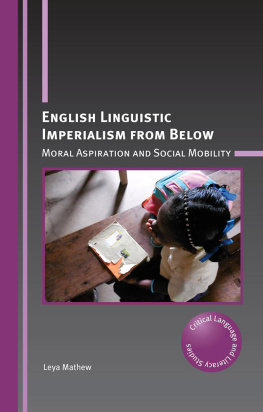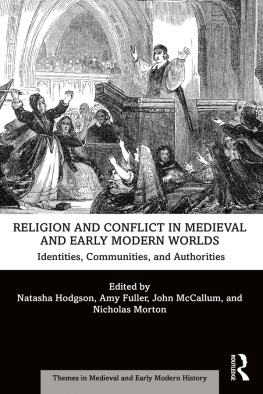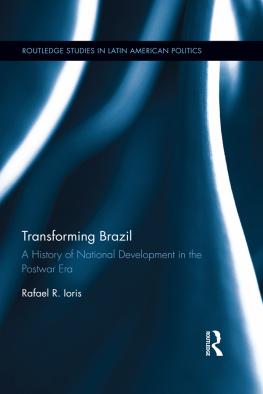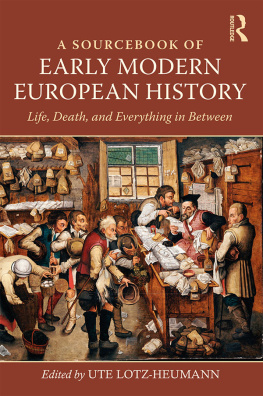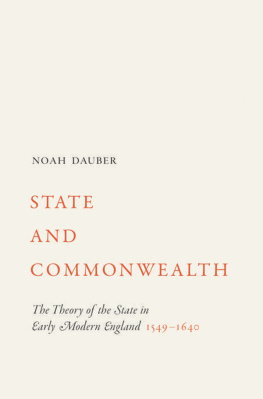The rise of social history has had a transforming influence on the history of early modern England. It has broadened the historical agenda to include many previously little-studied, or wholly neglected, dimensions of the English past. It has also provided a fuller context for understanding more established themes in the political, religious, economic and intellectual histories of the period. This volume serves two main purposes. Firstly it summarises, in an accessible way, the principal findings of forty years of research on English society in this period, providing a comprehensive overview of social and cultural change in an era vital to the development of English social identities. Secondly, the chapters, by leading experts, also stimulate fresh thinking by not only taking stock of current knowledge, but extending it, identifying problems, proposing fresh interpretations and pointing to unexplored possibilities. It will be essential reading for students, teachers and general readers.
Keith Wrightson is Randolph W. Townsend Jr Professor of History at Yale University. He previously held positions at the Universities of St Andrews and Cambridge, where he was Professor of Social History. His publications include the ground-breaking English Society, 15801680 (1982), Earthly Necessities: Economic Lives in Early Modern Britain (2000) and Ralph Tailors Summer: A Scrivener, His City and the Plague (2011), as well as many essays on the social history of early modern England. He is a Fellow of the British Academy, a former President of the North American Conference on British Studies, and an Honorary Vice-President of the Social History Society.
University Printing House, Cambridge CB 2 8 BS , United Kingdom
One Liberty Plaza, 20th Floor, New York, NY 10006, USA
477 Williamstown Road, Port Melbourne, VIC 3207, Australia
4843/24, 2nd Floor, Ansari Road, Daryaganj, Delhi 110002, India
79 Anson Road, #06-04/06, Singapore 079906
Cambridge University Press is part of the University of Cambridge.
It furthers the Universitys mission by disseminating knowledge in the pursuit of education, learning and research at the highest international levels of excellence.
www.cambridge.org
Information on this title: www.cambridge.org/9781107041790
DOI: 10.1017/9781107300835
Cambridge University Press 2017
This publication is in copyright. Subject to statutory exception and to the provisions of relevant collective licensing agreements, no reproduction of any part may take place without the written permission of Cambridge University Press.
First published 2017
Printed in the United Kingdom by Clays, St Ives plc
A catalogue record for this publication is available from the British Library.
ISBN 978-1-107-04179-0 Hardback
ISBN 978-1-107-61459-8 Paperback
Cambridge University Press has no responsibility for the persistence or accuracy of URL s for external or third-party Internet websites referred to in this publication and does not guarantee that any content on such websites is, or will remain, accurate or appropriate.
Contents
Keith Wrightson
Cathy Shrank
Paul Griffiths
Linda Pollock
Malcolm Gaskill
Alec Ryrie
Adam Fox
Jane Whittle
Phil Withington
Tim Stretton
John Walter
Adrian Green
Henry French
Craig Muldrew
Jeremy Boulton
Alexandra Shepard
Alison Games
Andy Wood
Figures
Tables
Contributors
Jeremy Boulton
University of Newcastle
Adam Fox
University of Edinburgh
Henry French
University of Exeter
Alison Games
Georgetown University
Malcolm Gaskill
University of East Anglia
Adrian Green
Durham University
Paul Griffiths
Iowa State University
Craig Muldrew
University of Cambridge
Linda Pollock
Tulane University
Alec Ryrie
Durham University
Alexandra Shepard
University of Glasgow
Cathy Shrank
University of Sheffield
Tim Stretton
Saint Marys University
John Walter
University of Essex
Jane Whittle
University of Exeter
Phil Withington
University of Sheffield
Andy Wood
Durham University
Keith Wrightson
Yale University
Acknowledgements
As editor I wish to express my thanks to all the contributors to this volume for their willingness to participate in the project. They were asked to undertake the difficult and demanding task of handling large themes within the constraints of relatively tight word limits, and to do so in a manner that would not only survey the findings and arguments of existing scholarship but also provoke fresh thinking and suggest ways forward in research. Reading and discussing the resulting draft chapters have been the most stimulating and rewarding part of editing this book. I am grateful also for their commitment in speedily writing final drafts, and their efficiency in turning around queries and proofs in the final stages of preparation and production. It has been a privilege to work with them.
The map in ) is reproduced from C. Phythian-Adams, Societies, Cultures and Kinship, 1580-1850: Cultural Provinces and English Local History (Leicester: Leicester University Press, 1996), xvii ( C. Phythian-Adams 1996). It is used here by kind permission of Bloomsbury Publishing plc.
This book is dedicated to the memory of Christopher W. Brooks, an outstanding historian of this period and a friend to many of us.
Abbreviations
AHR
American Historical Review
BL
British Library
C&C
Continuity and Change
DUL
Durham University Library
EcHR
Economic History Review
EEBO
Early English Books Online
EHR
English Historical Review
HJ
The Historical Journal
HWJ
History Workshop Journal
IRSH
International Review of Social History
JBS
Journal of British Studies
JFH
Journal of Family History
JMH
Journal of Modern History
NRO
Norfolk Record Office
ODNB
Oxford Dictionary of National Biography
P&P
Past & Present
RO
Record Office
SH
Social History
TNA
The National Archives, Kew
TRHS
Transactions of the Royal Historical Society
Introduction Framing Early Modern England
Keith Wrightson
In sixteenth- and seventeenth-century English, the verb to frame meant to construct, join together, shape, form, or devise and invent. Framing was the action, method or process of constructing, making or fashioning something. Sometimes they are defined in terms of broader processes that are cumulatively transformative: the rise of capitalism or individualism, for example, or the decline of magic or of the peasantry. But whatever the case, historical periods reflect perceptions of the shape of the past that originate in particular attempts to give it form and meaning, gradually become conventional, and persist while they retain the power to persuade us that they help make sense of it.

